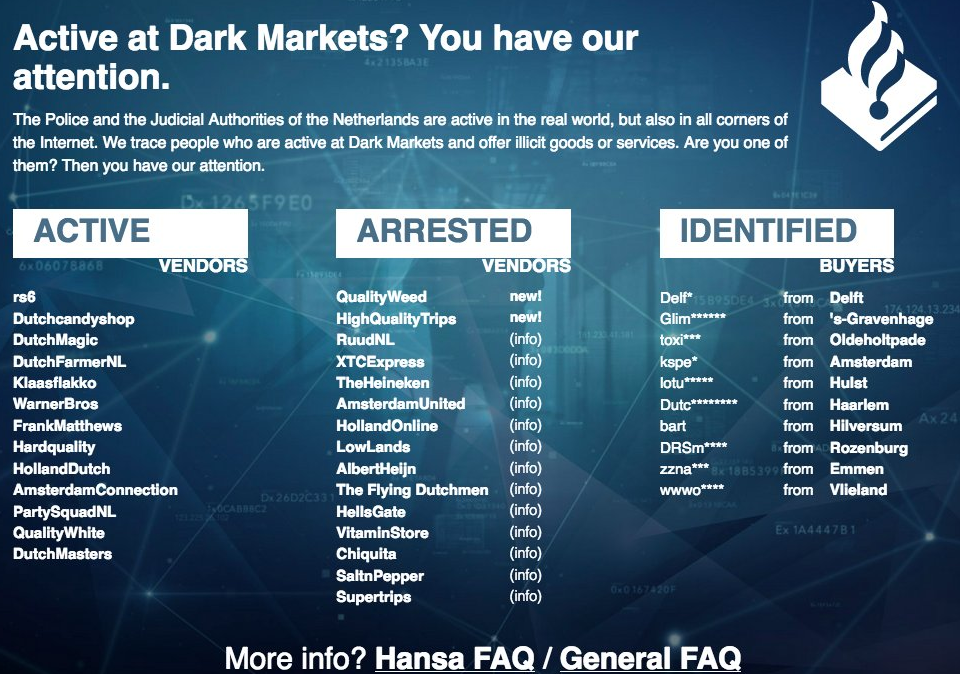Recently, the underbelly of the internet has arisen as a intriguing yet sinister realm where privacy reigns and forbidden transactions thrive. Nestled within the mainstream internet, the dark web offers a secret marketplace for everything from online commodities to contraband. It operates away from the watchful eyes of law enforcement, making it a nexus for those looking to buy or sell products under the radar. As demand in these darknet markets expands, so too does the need to understand their intricacies and the drives of those who take part in such dealings.
Investigating the world of dark web trading reveals a singular ecosystem that exists under its own set of principles and standards. Here, virtual currencies provide a layer of secrecy, allowing individuals to travel the marketplace with a degree of protection that conventional payment methods cannot provide. This environment not only raises questions about legality and morality but also about the impact of such trading on society as a collective. As we dig deeper into the operations of dark web markets, we reveal the forces that drive this digital black market and the consequences of its presence.
Comprehending the Hidden Web
The dark web refers to areas of the internet that are not indexed by traditional search engines and require specific software to access, typically Tor. This level of the web is distinct from the surface web, which encompasses everyday websites and online activities. Users often access the dark web to maintain privacy and anonymity, making it an environment where information can be shared freely without the risk of suppression or monitoring.
Inside the dark web, diverse markets operate, aiding the exchange of products and services that are typically illegal or controversial. These markets can include everything from drugs and weapons to stolen data and hacking services. The use of digital currencies further enhances anonymity, as transactions can be conducted without revealing the identities of the buyers and sellers. This feature of secrecy attracts a varied range of users, from those looking for contraband to cybercriminals engaging in nefarious activities.
Despite its negative reputation, the dark web also contains authentic communities and resources. Whistleblowers and activists frequently turn to these platforms to communicate safely without fear of persecution. Additionally, some journalists and researchers use the dark web to explore topics that require confidentiality. While its association with illegal activities dominates public perception, the dark web serves as a complex network where both illegal and legitimate interactions occur.
Types of Products and Services
The darkweb is recognized for its wide-ranging selection of products and services that are often illegal or highly controlled. One of the top sought-after products is unlawful drugs. From cannabis to synthetic opioids, darkweb markets offer an broad catalog for buyers looking to circumvent traditional legal routes. The anonymity of these sites allows individuals to buy drugs without the fear of prompt legal consequences, although there are risks involved, such as scams or law enforcement undercover operations.
In furthermore to drugs, the dark web also facilitates the trade of stolen data and hacking services. Hackers sell personal information such as financial details, social security numbers, and access credentials on multiple forums and platforms. In addition, cyber attack services, including Distributed Denial of Service attacks or network intrusions, can be hired for a fee. These illicit offerings cater to a varied array of people, from those wanting to exploit others to those seeking to enhance their own security measures. darknet market list
A less infamous but equally interesting category found on the darkweb is the selling of forged documents and offerings. This includes fake passports, driver's licenses, and academic qualifications, attractive to people seeking to bypass bureaucratic hurdles. In some cases, darkweb markets even provide resources and guides for creating forged documents, allowing individuals to delve into this illicit economy with considerable ease. The availability of these services emphasizes the dark web's role as a facilitator of not just crime, but also personal transformation and identity manipulation.

Risks and Repercussions
Participating in black markets carries numerous dangers that can lead to dire outcomes. One major risk is the potential for law-related issues. Law enforcement agencies worldwide constantly observe darknet activities, and they have had success in infiltrating, dismantling, and arresting individuals participating in criminal exchanges. Buyers and sellers often underestimate the scrutiny of their online activity, which can lead to arrests and harsh legal penalties.
Another major concern is the risk posed by frauds and deceitful offers prevalent in darkweb markets. Many users fall victim to sellers who do not deliver products after receiving payment. The anonymity of the darknet makes it difficult for victims to seek recourse or reclaim lost funds, leaving them with monetary setbacks and minimal chances for recovery. Trust is a rare commodity in these markets, and even seemingly trustworthy vendors can turn out to be fraudulent.
Additionally, browsing the darkweb can expose users to cyber risks. The risk of hacking, malware, and identity theft is significantly heightened when navigating these covert systems. Users may unintentionally download dangerous software or share sensitive information that can be taken advantage of by criminals. The anonymity promised by the dark web does not guarantee safety, and many find themselves facing unexpected challenges after venturing into these shadowy online spaces.
